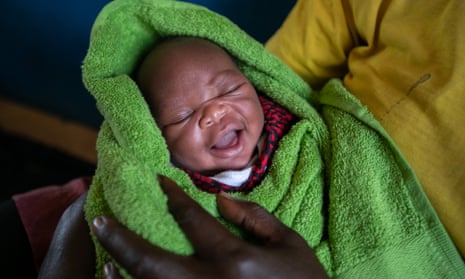Respectful maternity care is a universal human right due to every childbearing woman in every health system around the world. So why do women continue to endure violence, abuse and substandard care during childbirth?
As a midwife with more than 44 years of international experience, I have seen disrespect and abuse in many countries.
One particular experience is forever imprinted on my memory. I arrived at a busy maternity facility at 8am on a weekday morning to be greeted by the wails of a young woman who had been in labour overnight. She was lying on her back on a bed in a cubicle; there was no one with her. As her contractions peaked and her screams grew louder, a health worker walked up to her and slapped her sharply across her face. Another yelled at her for hurting everyone’s ears. As her next contraction began, and her screams rang out, one health worker shouted at her to shut up.
This experience is, sadly, not unique. Evidence is mounting that disrespect and abuse in maternity care is a global problem.
The Lancet recently published a study on facility-based childbirth in four countries – Ghana, Guinea, Myanmar and Nigeria – which found that one in three women had experienced mistreatment during childbirth.
This is not just a developing world issue, but a global epidemic. Time and again researchers have shown that whatever the woman’s race, class or location, she has a chance of experiencing mistreatment in childbirth. The problem is so prevalent that the recently published findings of the What Women Want report by the White Ribbon Alliance – which surveyed 1.2 million women in 114 countries – overwhelmingly showed that women want to be treated with respect and compassion while seeking and receiving healthcare.
There has been much debate about the key drivers of disrespect and abuse during childbirth. The factors responsible come as no surprise: under resourced health systems, overworked and underpaid health workers, an inadequately trained health workforce, restrictive hospital policies, fear of litigation and non-evidence-based policies.
Women around the world are bearing the brunt of inadequate care and attention during childbirth due to disrespect, and this must change. Woman-centred, compassionate maternal healthcare needs to become the international standard.
The woman who I saw screaming for help during labour needed supportive and expert care to bring her ordeal to a safe conclusion. A team of educated health professionals, working together, prioritising her and her unborn baby’s needs, should have been on hand. She needed a health system to provide resources, equipment, medicines and supplies. She needed her family to be with her, to know what was going on, and what the staff could do to help her. And everyone should have been working ethically and without discrimination.
Childbearing women need to know that they and their babies will be treated with kindness by competent, compassionate staff working in a system with zero tolerance for disrespect.
The International Confederation of Midwives (ICM) is taking a stand against disrespect in childbirth and will be reconfirming its commitment to quality care by midwives for women at a summit in Nairobi next week, which marks the 25th anniversary of the international conference on population and development. The programme of action agreed at the conference pledged appropriate healthcare services for women through pregnancy and childbirth.
We are calling on national health ministers to create policies that prioritise respectful maternity care and highlight that the responsibility of care lies with the healthcare provider and individual professionals.
Professional organisations, education institutions and medical, midwifery and nursing education providers need to prioritise training on respectful care, informed choice, consent and the human rights of women and newborns.
District and hospital managers need to implement policies and systems that are zero tolerance to abuse and disrespect, in consultation with local communities and professional associations. These policies need to cascade through all services and have a clear mechanism for accountability and a system for calling health professionals to account for any breaches.
Global professional organisations, NGOs and international organisations are vital in recognising and upholding respectful maternity care as a human right. ICM calls on the World Health Organization, UN Women and other global stakeholders to set up a respectful maternity care council and framework whereby countries are investigated and rated according to their treatment of expectant mothers during childbirth.
Satisfaction surveys of women should be implemented to track progress and the results must be accessible to the public. Crucially, the voices and experiences of women during childbirth must be heard.
